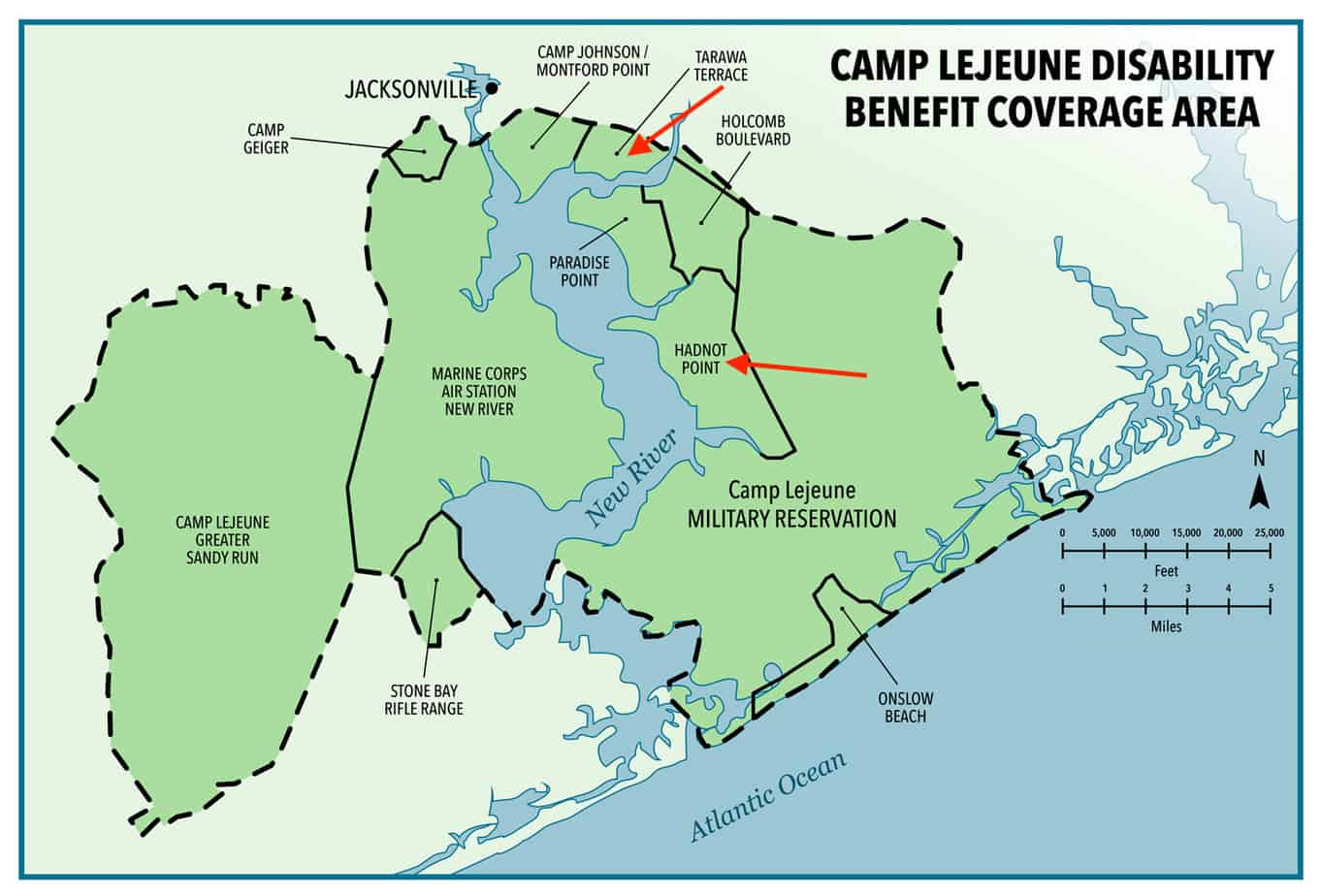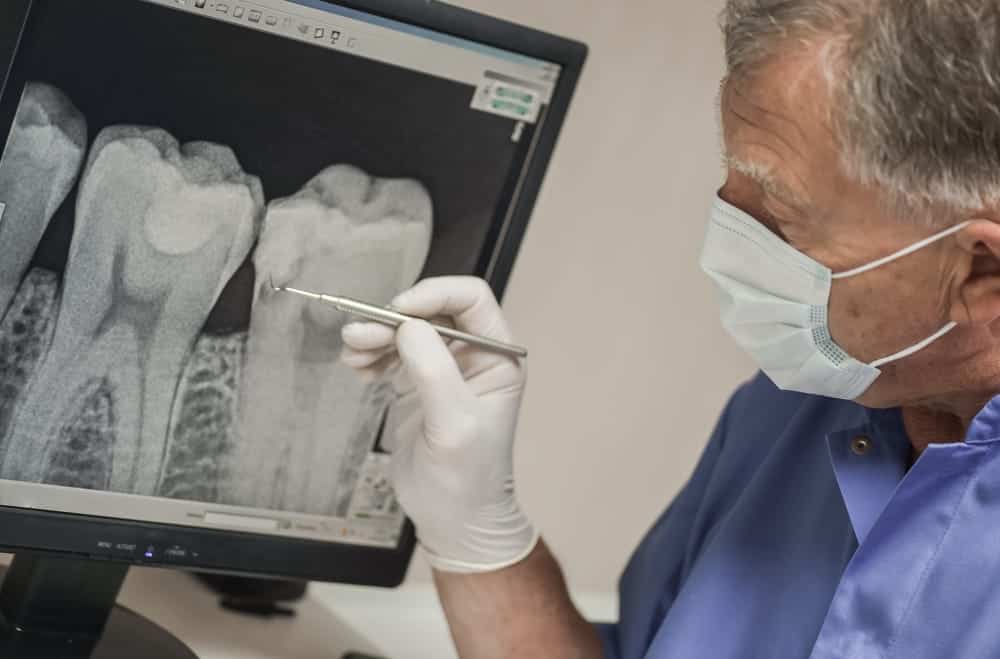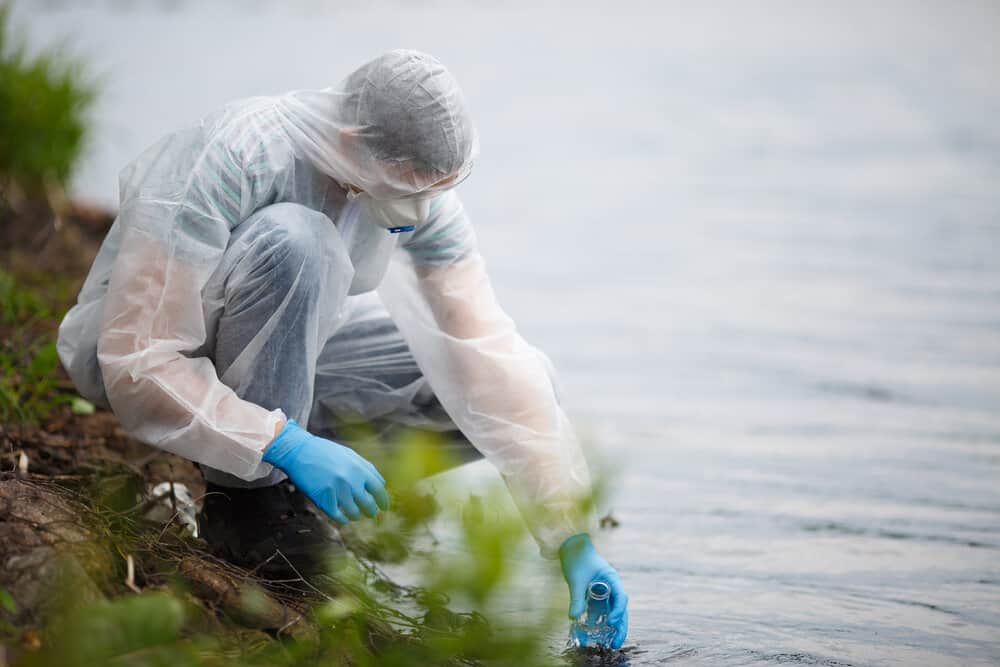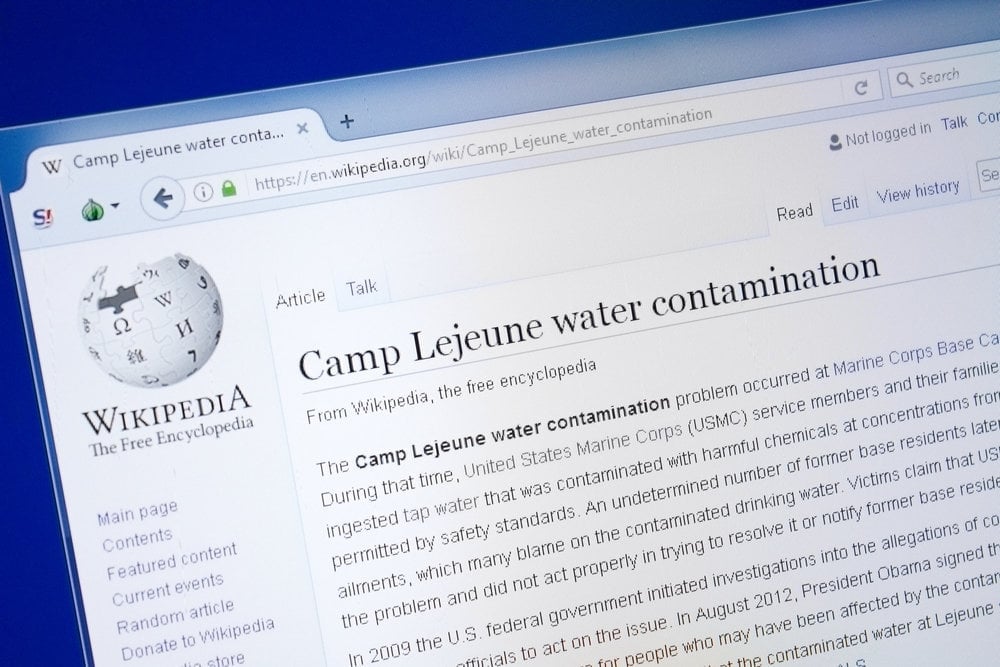Dental issues have plagued numerous United States Marines veterans and their family members stationed at Marine Corps Base Camp Lejeune between 1953 and 1987. The root cause of these problems has been traced back to hazardous chemicals contaminating the water supply from the base’s wells. This contamination resulted in various health issues, including prolonged dental problems, cancers, and birth defects.
Marine Corps Base Camp Lejeune in Jacksonville, North Carolina, became a superfund site in 1989 due to several major polluters in its water stream. From the 1950s to the 1980s, Marines at the camp likely consumed water tainted with dry cleaning chemicals, solvents used to clean machinery on the base, and other contaminants associated with severe health problems.
It is essential to raise awareness on this issue and inform those who served at Camp LeJeune or Marine Corps Air Station (MCAS) New River, North Carolina, about their eligibility for disability and health care benefits. Understanding the impact of the toxic water contamination in Camp LeJeune is crucial for addressing the health issues thousands of Marines, their families, and contractors face.
Camp Lejeune Water Contamination
Contaminated Water
Camp Lejeune, a U.S. Marine Corps base in North Carolina, experienced significant water contamination from the 1950s through the 1980s. During this period, individuals living or working at the base were potentially exposed to drinking water contaminated with industrial solvents, benzene, and other harmful chemicals. The contamination began in the early 1950s, and the most contaminated wells were eventually shut down in 1985. As many as one million military personnel, civilian staff, and their families might have been exposed to the polluted water.
The contamination stemmed from various sources, including:
- Dry cleaning chemicals
- Solvents used to clean machinery on base
- Other contaminants linked to health problems
Camp Lejeune was declared a superfund site in 1989 due to these significant pollutants in the water supply.

Health Problems
Exposure to the contaminated water at Camp Lejeune has resulted in various health issues for the affected individuals. These problems include, but are not limited to:
- Prolonged dental issues
- Cancers
- Birth defects
- Neurobehavioral effects
In response to this public health crisis, the Caring for Camp Lejeune Families Act of 2012 was enacted, which provides disability and healthcare benefits to those who served at Camp Lejeune or Marine Corps Air Station (MCAS) New River between August 1, 1953, and December 31, 1987. Family members who were also exposed during this period are also eligible for benefits.
The health repercussions of the Camp Lejeune water contamination are still being studied and monitored, as the long-term effects on those exposed continue to manifest in various ways.
Dental Issues
Between 1953 and 1987, many United States Marines veterans and their family members stationed at Marine Corps Base Camp Lejeune were exposed to hazardous chemicals in the water from the base’s wells. This exposure has led to numerous health issues, including prolonged dental issues, cancers, and birth defects.
Several veterans and their families have reported dental issues related to Camp Lejeune water contamination. The primary method of toxic exposure was drinking, bathing, and brushing teeth-all using the contaminated water. Symptoms reported include teeth cracking and tooth decay.
The contamination at Camp Lejeune has been linked to serious health issues, including dental problems. The chemicals in the water, such as dry cleaning chemicals and solvents used to clean machinery on the base, were among the many contaminants associated with these health problems. The camp was eventually named a superfund site in 1989 due to the numerous major polluters in the water stream.
To address these dental issues, veterans and their families who were affected may be eligible for disability and health care benefits. Those who served at either Marine Corps Base Camp Lejeune or Marine Corps Air Station (MCAS) New River, North Carolina, between August 1, 1953, and December 31, 1987, can apply for these benefits and support in managing the consequences of the water contamination.
Those affected by the Camp Lejeune water contamination must take their dental issues seriously and seek the necessary treatment and support. As more information continues to emerge about the extent of the contamination and its impact on health, further steps can be taken to address these problems and provide care for those in need.
Cancers Linked to Contamination
The water contamination at Camp Lejeune is associated with several types of cancers. This section highlights the cancers that have been linked to contaminated water.
Bladder Cancer
Bladder cancer has been reported among those exposed to the contaminated water at Camp Lejeune. Individuals who consume the water at the camp may have an increased risk of developing this type of cancer.
Breast Cancer
Breast cancer is another cancer connected to Camp Lejeune’s water contamination. Women stationed at the camp or on base may have been exposed to contaminants that contribute to a higher risk of developing breast cancer.
Kidney Cancer
The contaminated water at Camp Lejeune has also been linked to an increased risk of kidney cancer. The chemicals present in the water, such as TCE and PCE, could potentially play a role in developing this cancer.
Liver Cancer
Liver cancer has been identified as another type of cancer linked to water contamination at Camp Lejeune. Individuals exposed to the contaminated water may have been consuming harmful chemicals that increase the risk of liver cancer.
Adult Leukemia
Adult leukemia is another type of cancer associated with exposure to contaminated water at Camp Lejeune. The chemicals in the water could contribute to the development of this blood cancer.
Esophageal Cancer
The water contamination at Camp Lejeune has also been linked to an increased risk of developing esophageal cancer. Individuals who consumed the contaminated water may have been exposed to harmful chemicals that promote the development of this cancer.
Non-Hodgkin’s Lymphoma
Non-Hodgkin’s lymphoma is another type of cancer associated with the contaminated water at Camp Lejeune. The chemicals in the water may have played a role in increasing the risk of developing this cancer in individuals who were exposed.
Cervical Cancer
Cervical cancer has also been connected to the water contamination at Camp Lejeune. Women stationed at the camp or on base during the time of contamination may have been exposed to harmful chemicals that contribute to a higher risk of developing cervical cancer.
Camp Lejeune Justice Act
The Camp Lejeune Justice Act of 2022, part of the Honoring our PACT Act (Public Law 117-168), provides legal rights and avenues for Veterans and their families exposed to contaminated water at Camp Lejeune between 1953 and 1987. This law enables individuals to file new lawsuits for health-related issues resulting from the exposure, which includes dental issues, among other serious illnesses.
During this period, the water at Camp Lejeune was polluted with various chemicals, such as dry cleaning solvents and chemicals used to clean machinery on the base. These contaminants have been linked to numerous health problems, with dental issues being one of the primary reported.
Veterans and family members seeking compensation under the Camp Lejeune Justice Act can file wrongful death claims against the federal government if they have spent at least 30 days at Camp Lejeune during the specified time frame. However, if a court awards relief in a lawsuit filed under the act, the court must offset the award by the amount of any related disability award, payment, or benefit provided by the Department of Veterans Affairs.
In conclusion, the Camp Lejeune Justice Act addresses an important issue by creating legal opportunities for those affected by the contaminated water at Camp Lejeune to seek justice and compensation for their health-related problems, including dental issues.
Janey Ensminger Act
The Janey Ensminger Act of 2019 is a significant piece of legislation related to the water contamination issue at Camp Lejeune. This act aimed to address the environmental contamination and its impact on the health of individuals who lived and worked at Camp Lejeune, NC. The act extends health care to veterans and their family members who suffer from certain diseases and conditions due to exposure to contaminated well water in North Carolina from 1953 to 1987.
The act was named after Janey Ensminger, the 6-year-old daughter of a Marine serving at Camp Lejeune. Janey was diagnosed with leukemia in 1983 and sadly passed away less than three years later. Her father, Jerry Ensminger, a drill instructor, spent years searching for an explanation for his daughter’s illness, leading him to discover the water contamination problems at Camp Lejeune.
As a result of the contaminated water at Camp Lejeune, numerous health issues have surfaced in those exposed to the toxic chemicals. One of this exposure’s most significant health issues is prolonged dental issues. Such problems stem from the various hazardous substances in the water, including chemicals from dry cleaning, solvents used to clean machinery on the base, and other contaminants linked to health problems.
Through the Janey Ensminger Act, veterans and their family members affected by the Camp Lejeune water contamination receive extended health care. This assistance helps alleviate medical expenses from diseases and conditions related to contaminated well water exposure. Overall, the Janey Ensminger Act serves as an essential legislative effort to support those affected by the water contamination at Camp Lejeune.
VA Benefits and Claims
Evidence
Veterans who served at Camp Lejeune or Marine Corps Air Station (MCAS) New River, North Carolina, between August 1, 1953, and December 31, 1987, are eligible for disability and healthcare benefits due to the water contamination that led to various health issues, including dental problems. To receive these benefits, veterans need to provide evidence supporting their claims.
In some cases, veterans have received a 100% VA disability rating, which qualifies them for up to $3,000 per month in compensation. The VA allocated $2 billion in 2017 specifically for veterans suffering from ailments related to Camp Lejeune water contamination.
Medical Records
Submitting comprehensive medical records is essential for veterans to make a successful claim. These records should document the dental and other health problems resulting from the Camp Lejeune water contamination. Veterans should gather all pertinent medical documents, including:
- Medical test results and reports
- Records of treatments and hospitalizations
- Relevant diagnosis and treatment histories
- Statements from healthcare professionals explaining how the dental conditions and other health problems are related to the water contamination at Camp Lejeune
Providing detailed medical records will help establish the connection between dental issues and water contamination, improving the chances of a successful claim.
Veterans can pursue compensation for their dental issues and other health problems through VA benefits without the need for a lawsuit. Claims under the Camp Lejeune Justice Act (CLJA) are separate from VA benefits, and veterans should be cautious of companies asserting that VA benefits cannot be obtained without their assistance. With proper evidence and medical records, veterans can receive the eligibility and support they deserve from the VA.
Lawsuits and Legal Representation
Best Attorneys for Veterans
Veterans, their family members, and other individuals affected by the contaminated water at Camp Lejeune have been filing lawsuits in North Carolina’s federal court. These lawsuits claim various health issues and injuries, including dental conditions, due to exposure to the contaminated water on the Marine Corps base. Many legal firms are participating in these cases and offering their services to represent the affected individuals in their pursuit of justice and financial compensation.
Financial Compensation
The compensation sought in these lawsuits varies depending on the individual case and the severity of the health issues and dental conditions experienced. The number of lawsuits continues to rise, with over 260 civil suits filed in the Eastern District of North Carolina as of March 20, 2023. With around 5,000 claims already filed since the new legislation made it easier for individuals to sue the government, this legal action has the potential to become one of the largest mass civil cases in history.
Those affected by the Camp Lejeune water contamination must seek proper legal representation and pursue financial compensation for any medical and dental issues they have experienced.
FAQs
Did contaminated water at Camp Lejeune lead to tooth decay and other dental issues?
Yes, some Veterans who served at Camp Lejeune say the contaminated water caused their teeth to deteriorate, break, or even fall out. The contamination likely stemmed from the camp’s water being exposed to dry cleaning chemicals and chemicals from the solvents used to clean machinery on base, among other pollutants linked to health problems.
When did the water contamination at Camp Lejeune occur?
The water contamination at Camp Lejeune took place from the 1950s through the 1980s. People living or working at the U.S. Marine Corps Base Camp Lejeune in North Carolina were potentially exposed to drinking water contaminated with industrial solvents, benzene, and other chemicals during this period.
Is there any legal recourse for those affected by the Camp Lejeune water contamination?
Yes, the Camp Lejeune Justice Act of 2022 (part of the Honoring our PACT Act, Public Law 117-168) allows new lawsuits for individuals exposed to contaminated water at Camp Lejeune. The President signed this law on August 10, 2022.
Are there any benefits for Veterans and their families affected by the Camp Lejeune water contamination?
Yes, Veterans who served at Camp Lejeune or Marine Corps Air Station (MCAS) New River, North Carolina, between August 1, 1953, and December 31, 1987, may be eligible for disability and health care benefits. The Caring for Camp Lejeune Families Act of 2012 also benefits affected family members.



